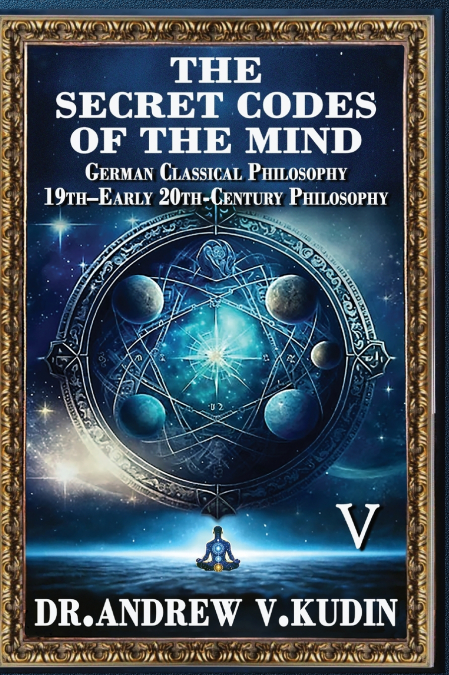
Andrew V. Kudin
THE SECRET CODES OF THE MIND: Classical German Philosophy and 19th-Early 20th Century Philosophy, Book V (Revised Academic Edition)The fifth volume of The Secret Codes of the Mind offers a comprehensive introduction to the philosophical movements that shaped the intellectual landscape of modern Europe. Focusing on Classical German Idealism and 19th-early 20th century thought, this volume presents a structured, scholarly, and accessible exploration of ideas that continue to influence contemporary philosophy, science, politics, and culture.The first module centers on Classical German Philosophy. It begins with Immanuel Kant’s critical revolution, examining his epistemology, moral philosophy, and influence on subsequent thinkers. The works of Johann Gottlieb Fichte and Friedrich Wilhelm Joseph Schelling are discussed as key developments in the science of knowledge and the philosophy of nature. Friedrich Schiller’s contributions to aesthetics and political freedom are examined alongside Georg Wilhelm Friedrich Hegel’s system of Absolute Idealism, with a focus on dialectics, historical development, and the unity of thought and spirit.The second module explores 19th and early 20th century philosophy. It opens with Karl Marx, whose dialectical materialism, critique of capitalism, and vision of socialism are presented in both historical and philosophical context. Russian religious philosophers such as Vladimir Solovyov, Nikolai Berdyaev, and Pavel Florensky are introduced as thinkers who reimagined spiritual and ethical questions in the face of modernity.This module also explores two contrasting intellectual movements-Positivism and Existentialism. The former is represented by Auguste Comte and Ernst Mach, emphasizing empirical science and logical analysis. The latter includes Søren Kierkegaard and Fyodor Dostoevsky, confronting freedom, absurdity, and the human condition. The final lecture explores the philosophy of will in the works of Arthur Schopenhauer and Friedrich Nietzsche, addressing themes of power, suffering, self-overcoming, and meaning in a fragmented world.Rich in primary ideas and contextual interpretation, Book V guides readers through a dynamic era of philosophical creativity, bridging metaphysics and modern psychology, ethics and revolution, system and rebellion. It is ideal for classroom use and independent study.